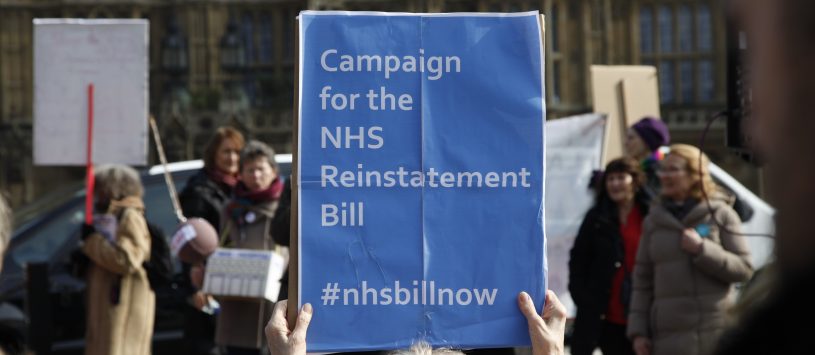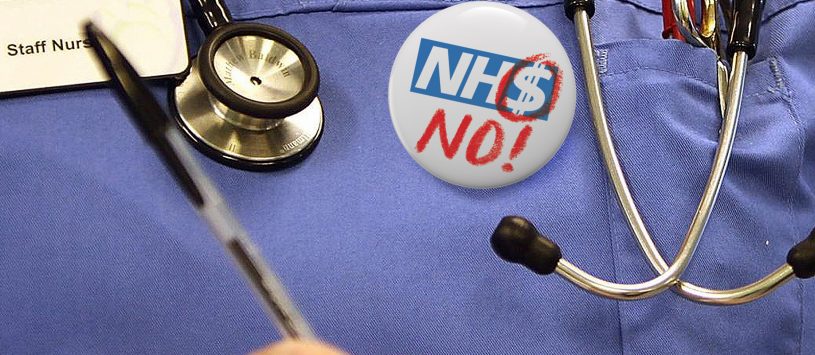Stephen Hawking has joined the lawsuit seeking to stop the introduction of the first accountable care organisations (ACOs) into the NHS in England in April without proper public consultation and without full Parliamentary scrutiny.
Read the full Guardian article from Friday 8th December 2017.

If possible, please do support the crowdjustice funding appeal for the judicial review.
The Judicial Review is against the Secretary of State for Health Jeremy Hunt and NHS England to stop them introducing new commercial, non-NHS bodies to run health and social services without proper public consultation and without full Parliamentary scrutiny – ACOs.
ACOs would be governed by company and contract law and can be given “full responsibility” for NHS and adult social services. They were conceived in the US about 12 years ago, and are now being imported into England although they are not recognised in any Act of Parliament. They would be able to decide on the boundary of what care is free and what has to be paid for. They will be paid more if they save money.
They can include private companies (e.g. Virgin in Frimley, Circle in Nottinghamshire), including private insurance and property companies, which will make money from charging. They could also include GP practices, in which case people on their lists will automatically transfer to the ACO in order to be entitled to services – new patients will also have to register with the ACO. They will be allowed to sub-contract all “their” services.
Such commercial ACOs would fundamentally change the NHS and could profit from a radical reorganisation of health and social services. They would have control over the allocation of NHS and taxpayers’ money. Their accountability for spending it and their obligations to the public would be under commercial contracts, not statutes.
It is also against the public interest that they are being introduced by stealth, without proper public consultation and without full Parliamentary scrutiny.
Integration of health and care services is a desirable aim, but not whilst their funding and population bases are so different and without new primary legislation. This affects everyone in England.
The Secretary of State for Health has carried out a consultation on technical changes to regulations in order to facilitate ACOs. But he did this without providing meaningful information about ACOs themselves and without consulting the public or Parliament about what his plans entail.
The technical changes include suspending GP contracts so that GPs – and their patients – can transfer to the ACO. They also provide, for the first time, a definition of an “ACO” which confirms that they could be private companies.
The correspondence makes clear that the Secretary of State and NHS England intend that the first ACOs should come into being as soon as the regulations are passed and before there has been public consultation.
The claimants say that the Secretary of State and NHS England are obliged to consult and that ACOs lie outside the framework of the current legislation.
The claimants also say that the decision to introduce them in this way is contrary to their duty of transparency in decision making in the NHS.
The lawyers have studied the replies received to the first letter before action and have sent a further letter to both the Secretary of State and NHS England.
The claimants intend to file proceedings in the court shortly, in time to stop the introduction of any ACO.


